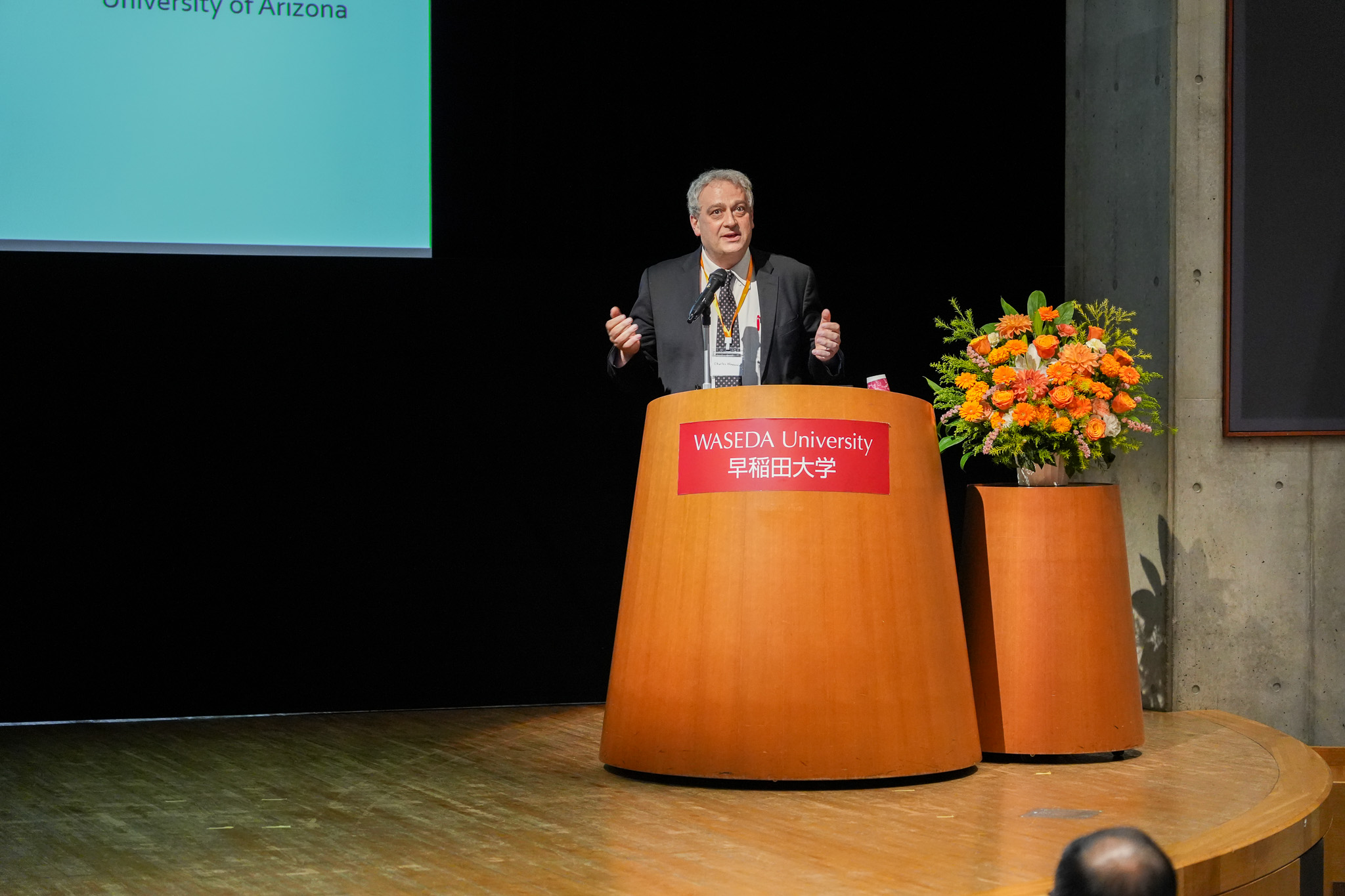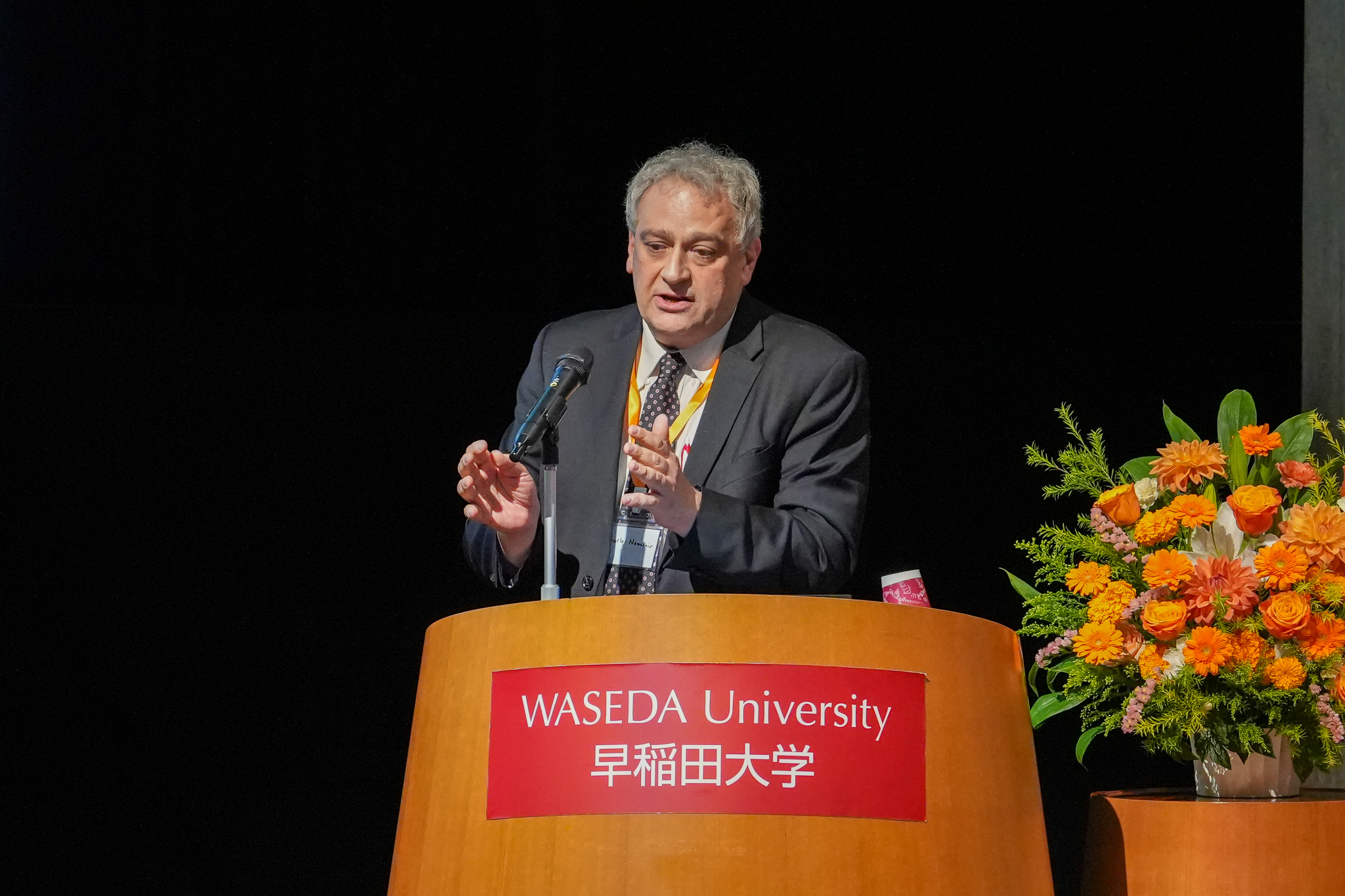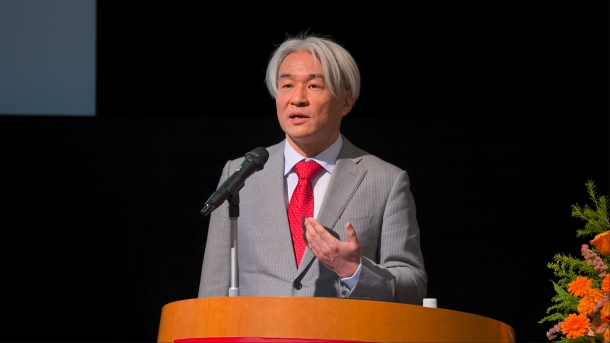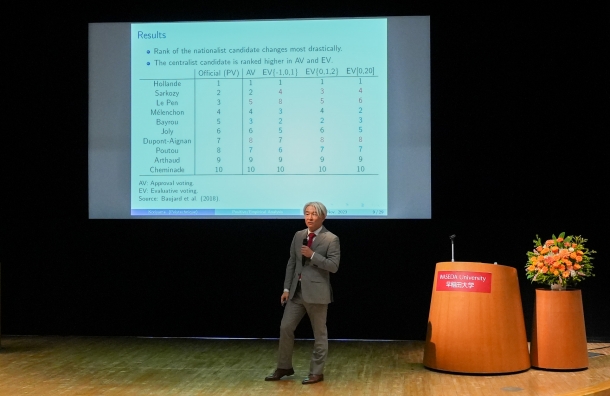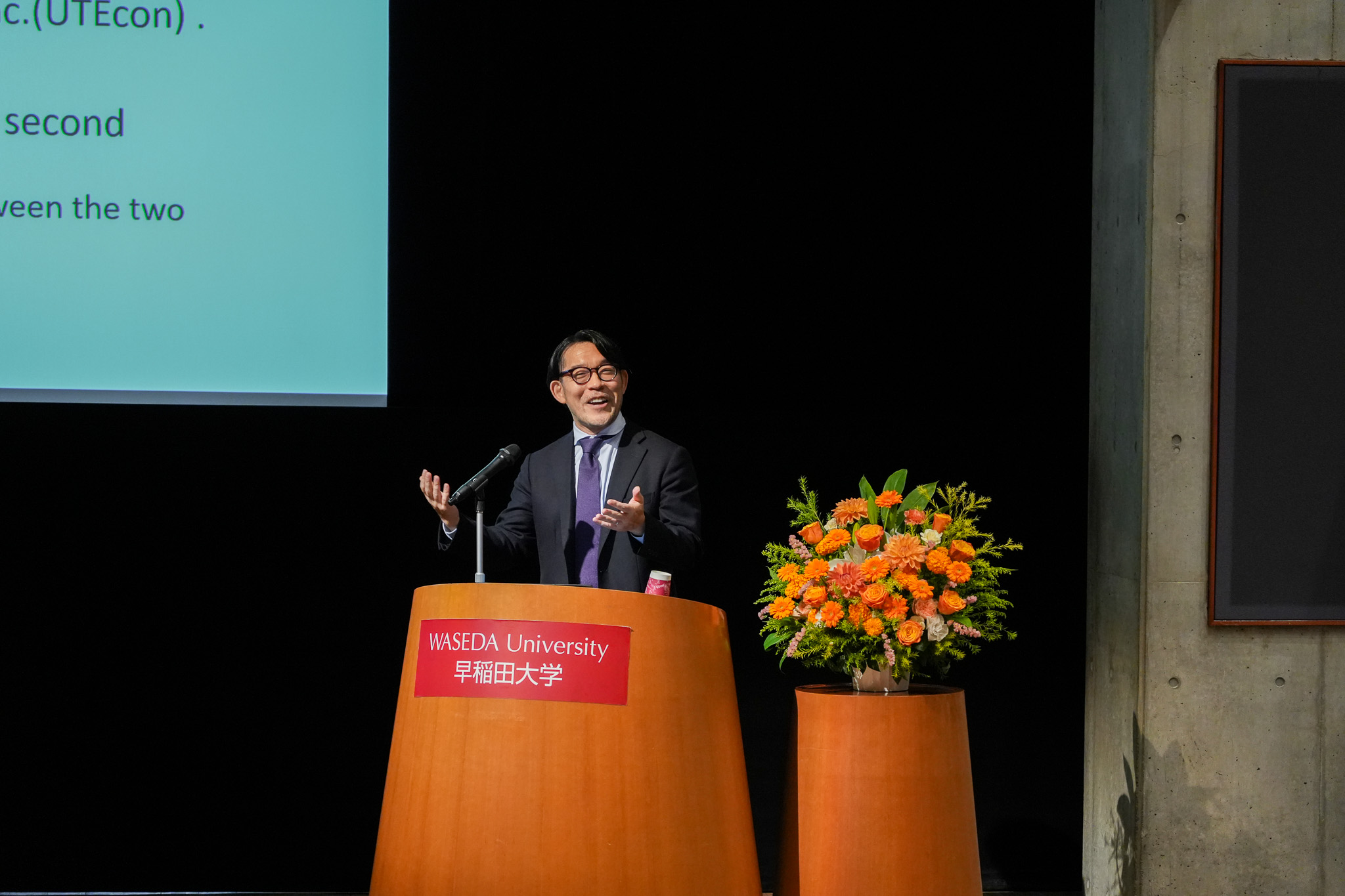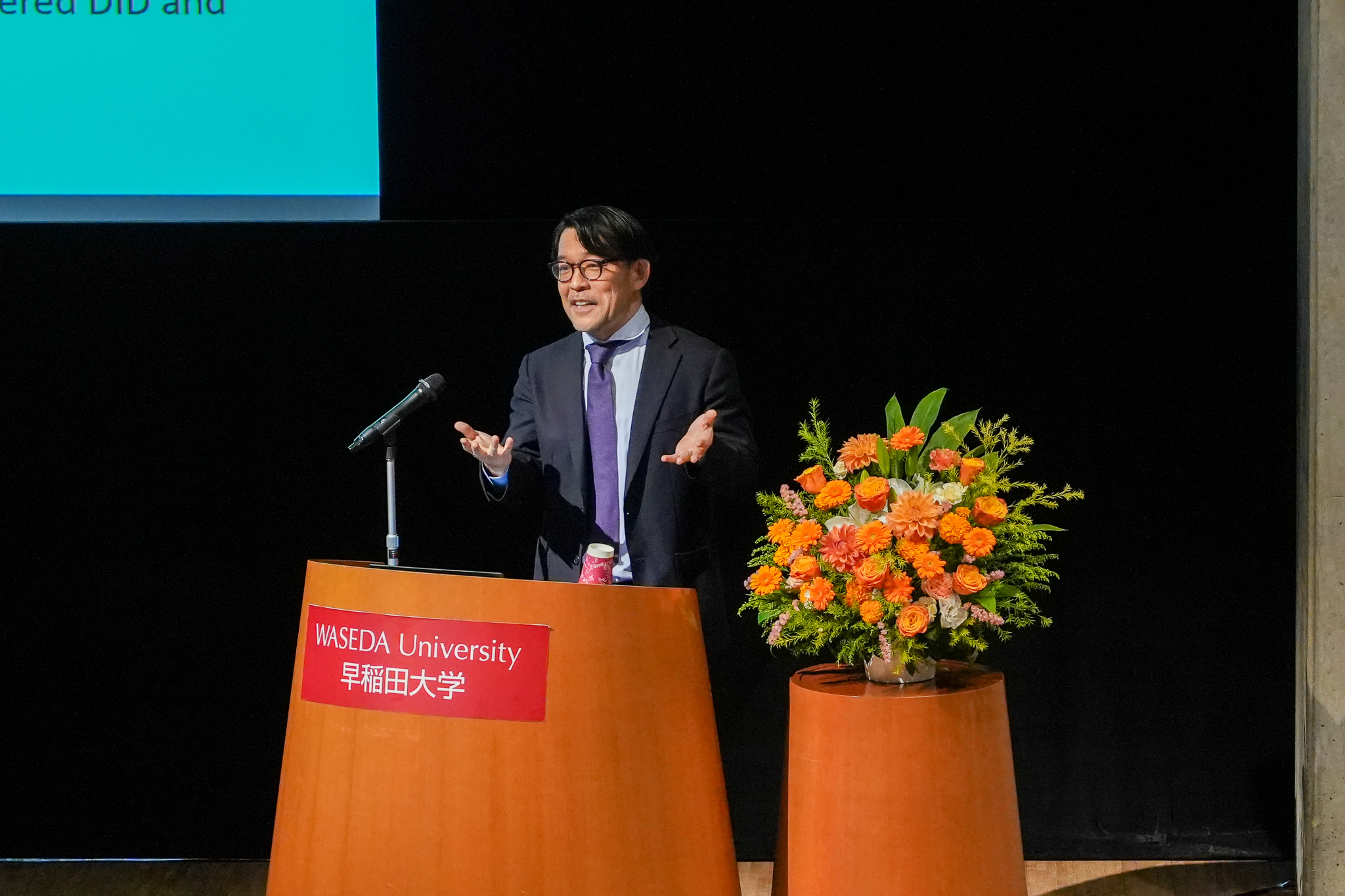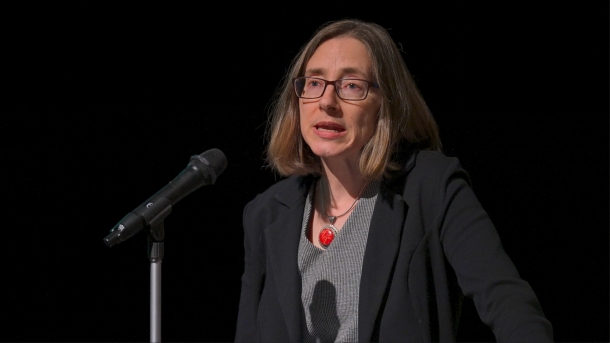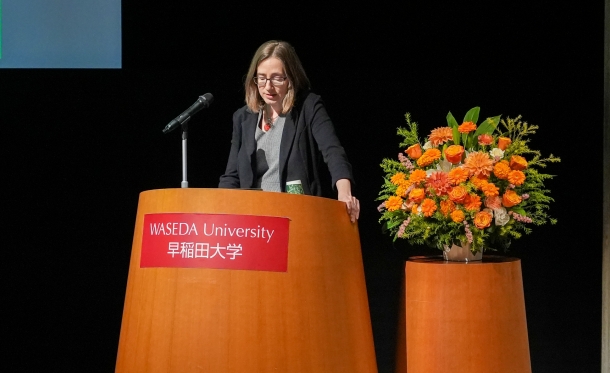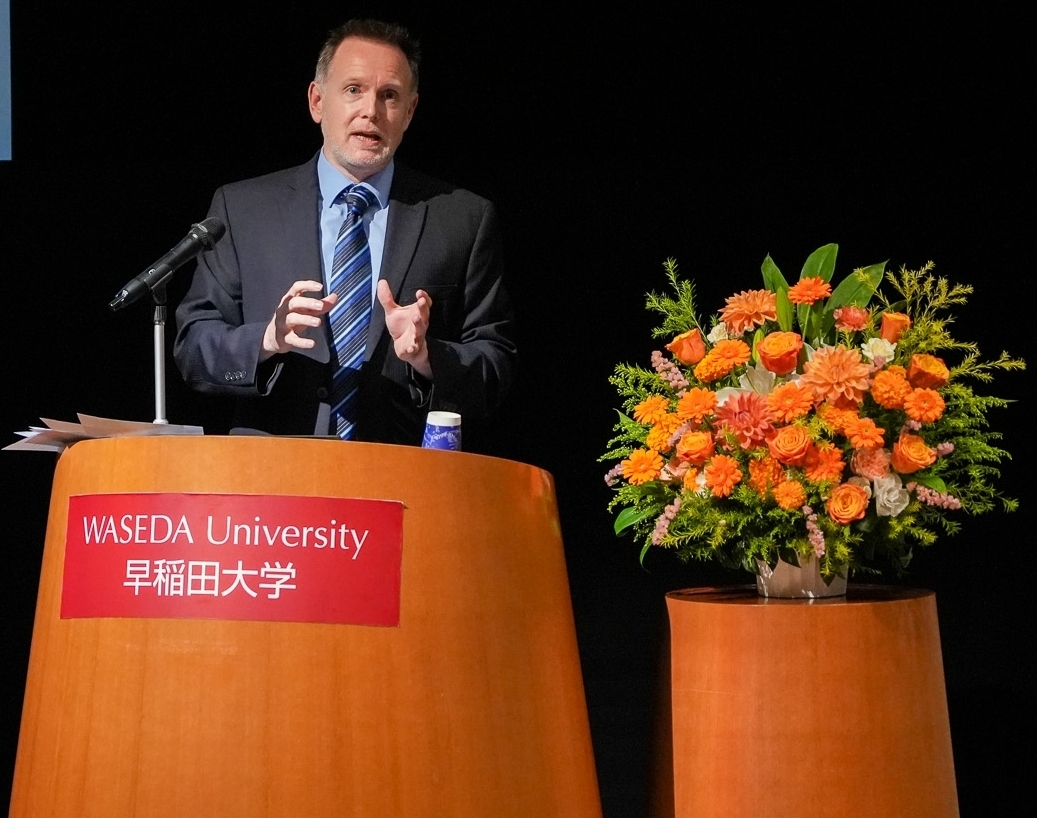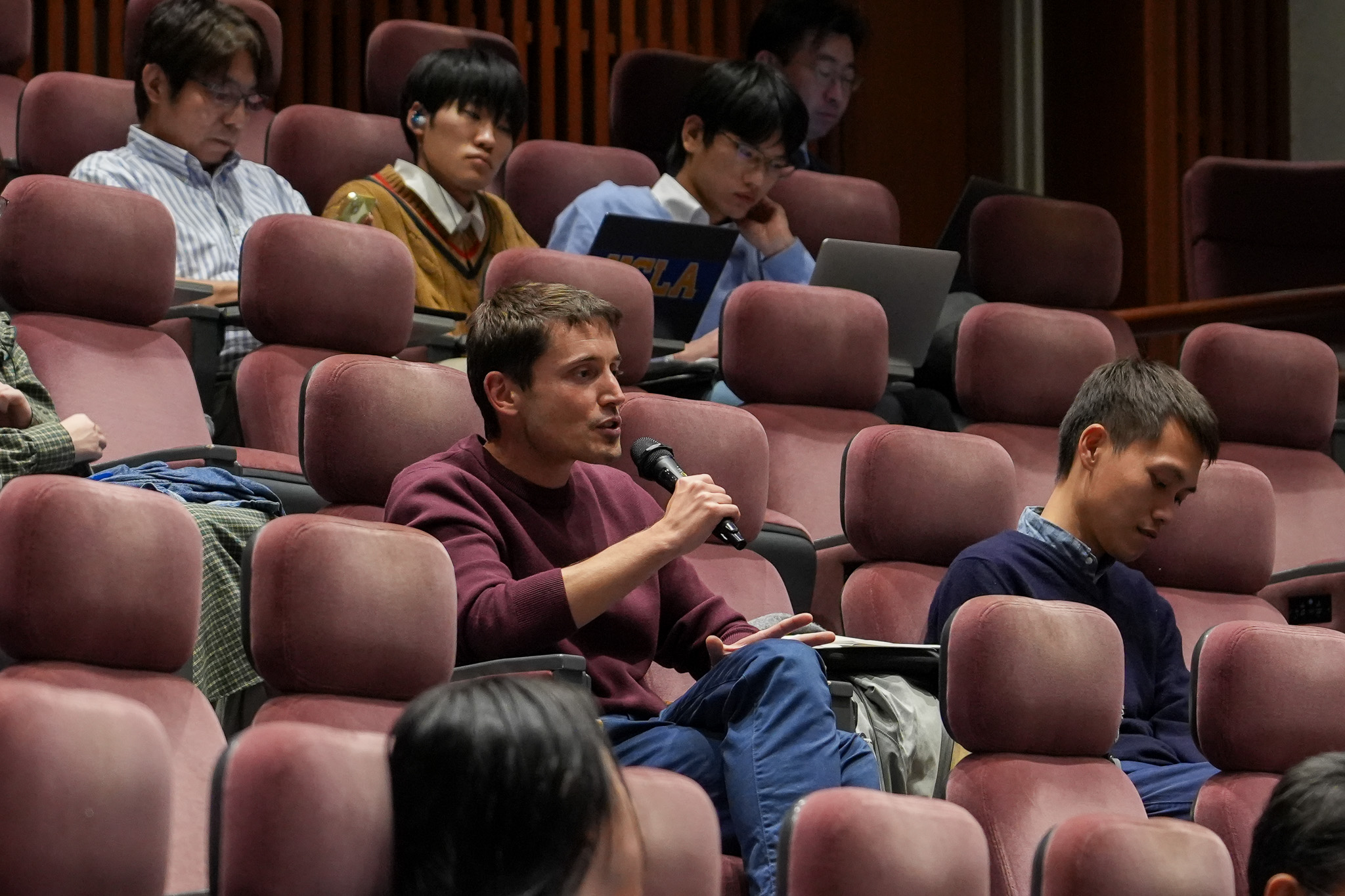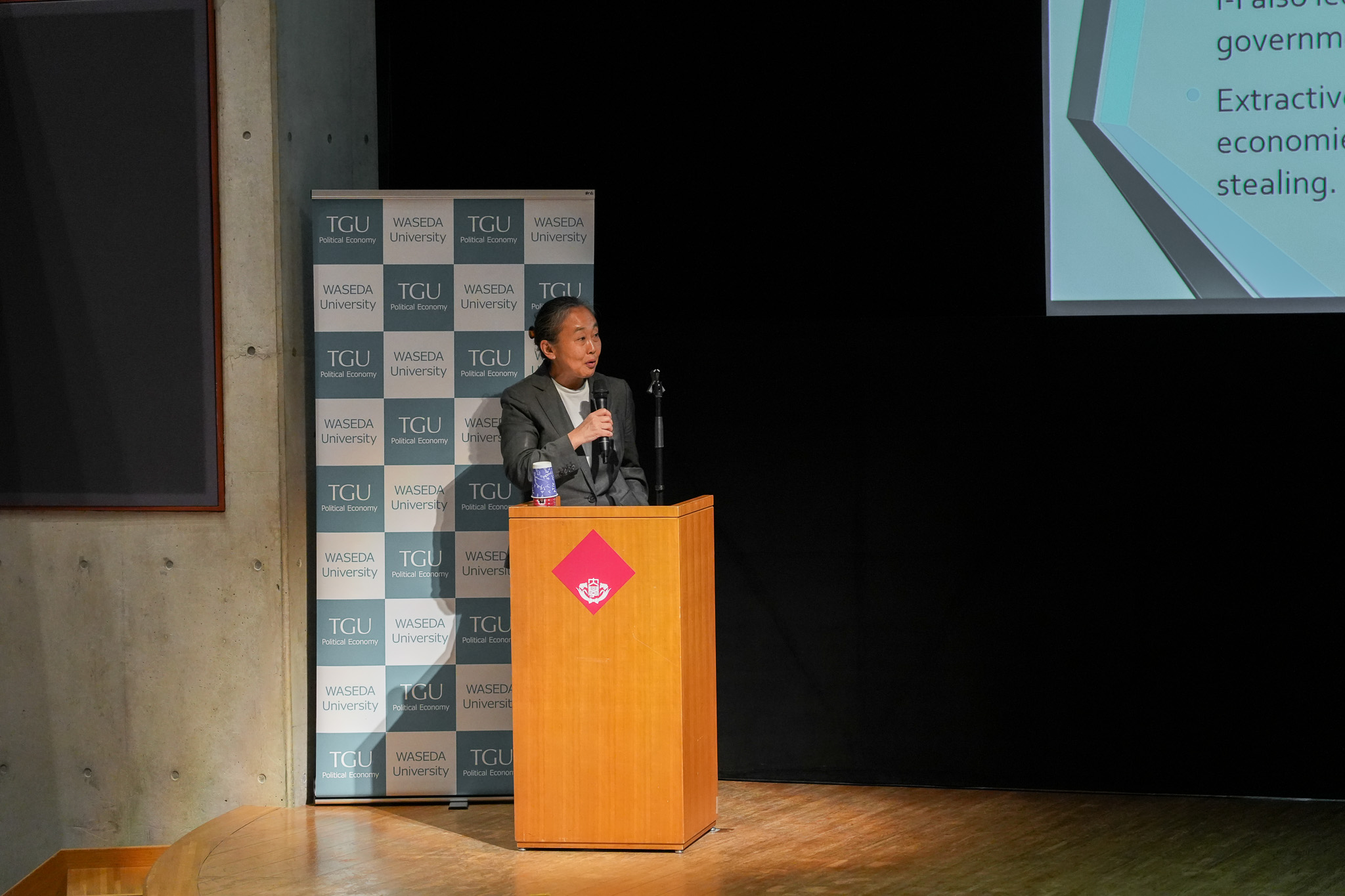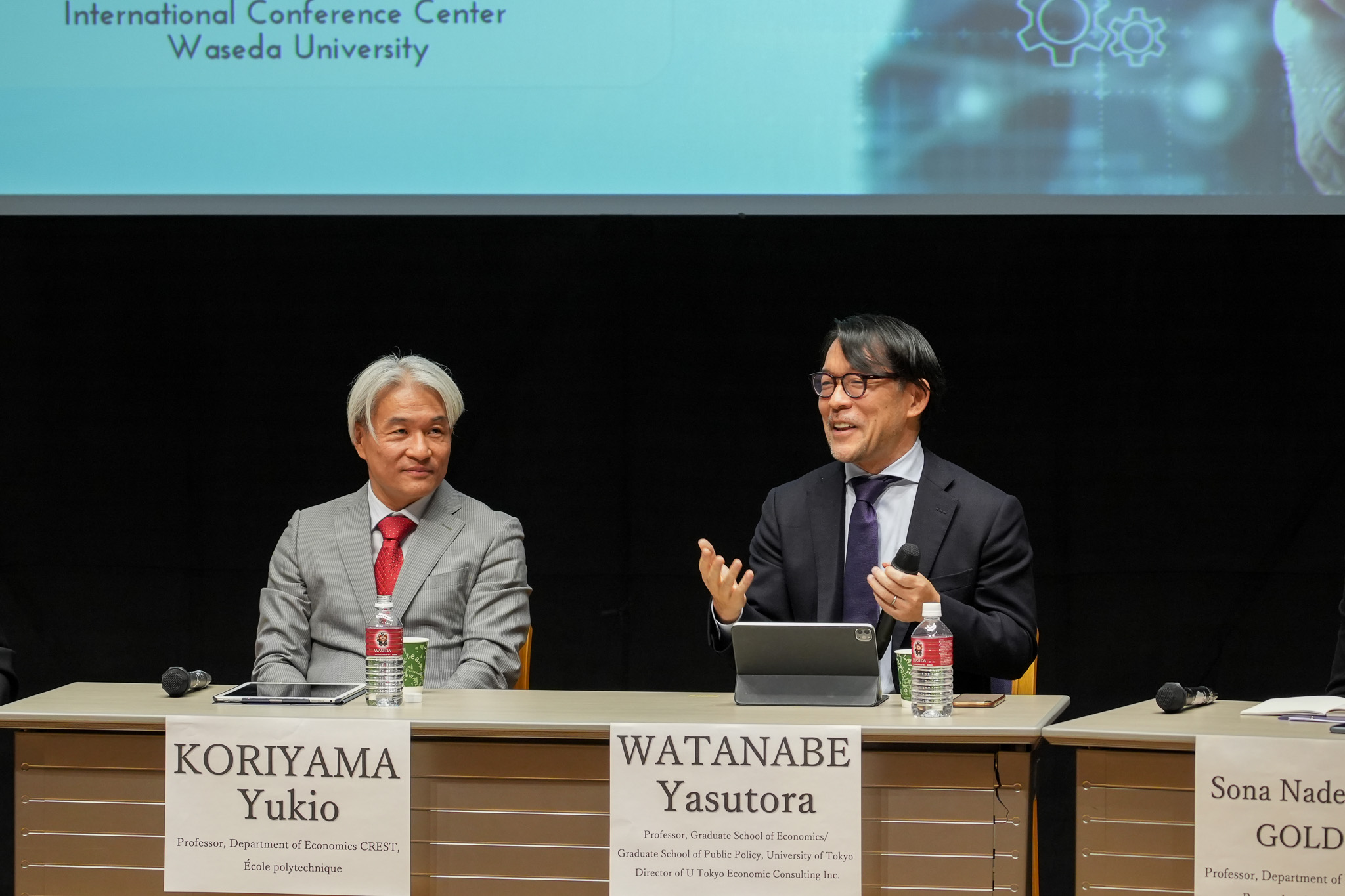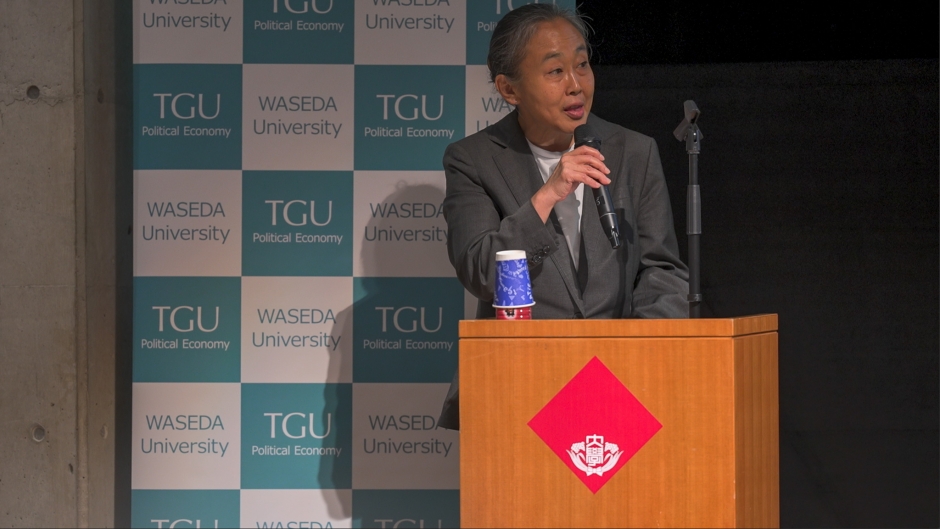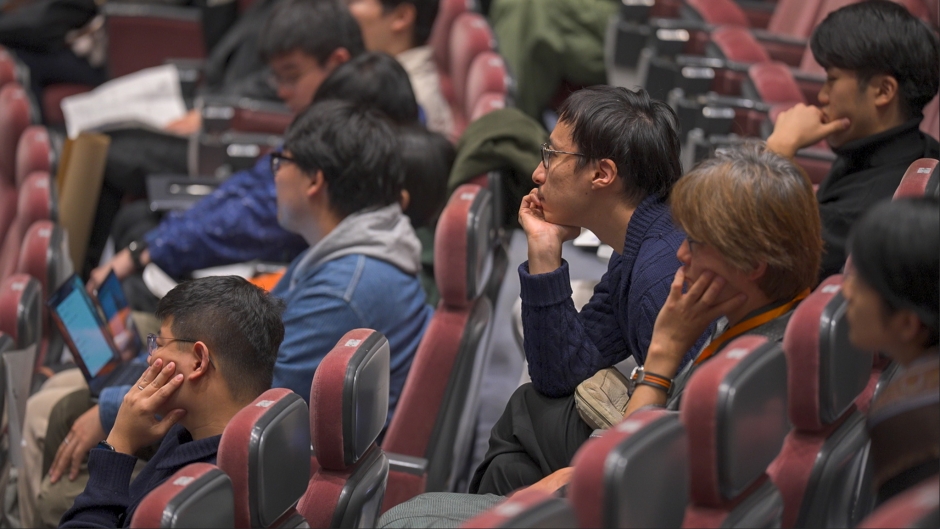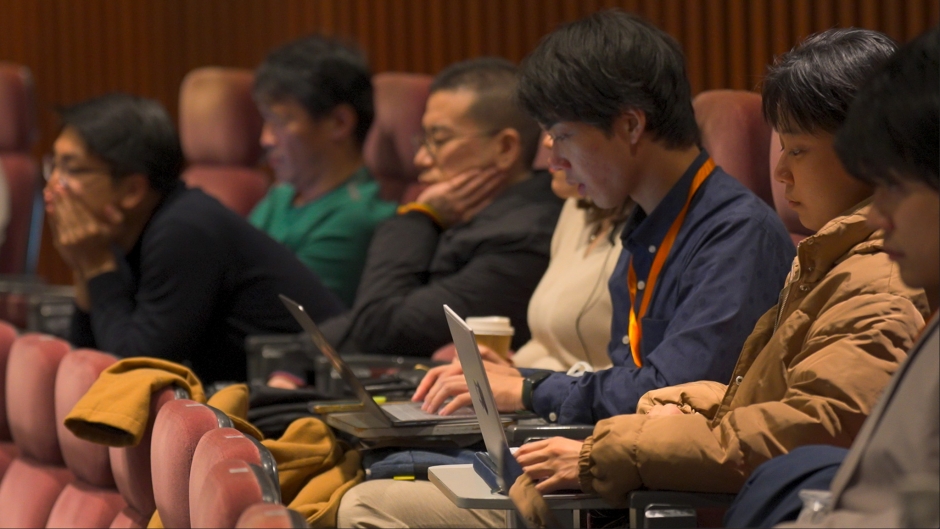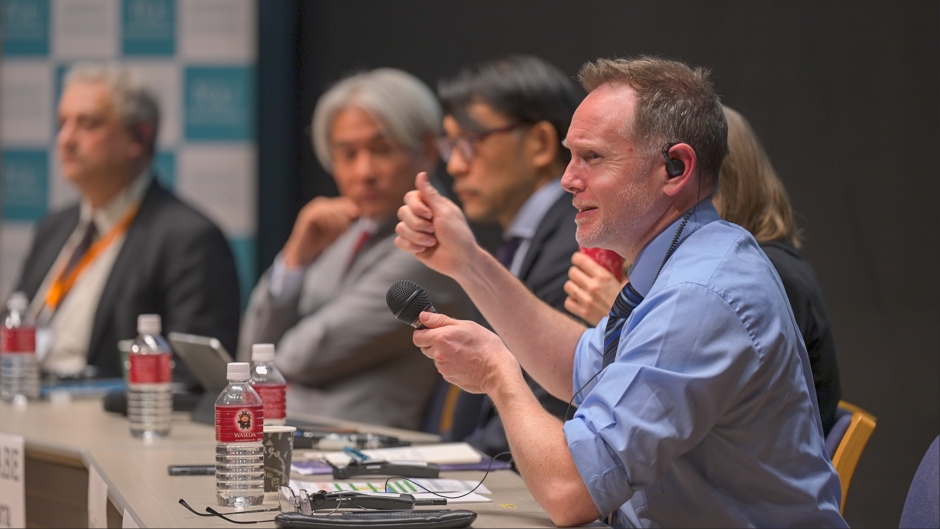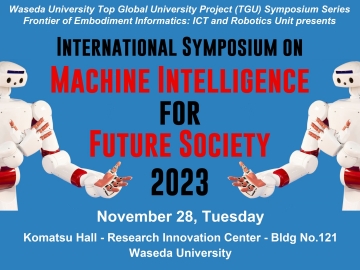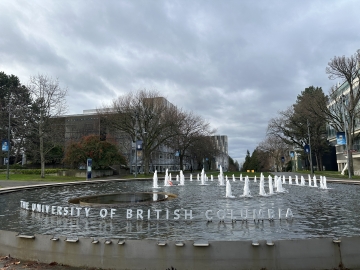On Saturday, November 25, 2023, the Waseda University Top Global University Project(TGU) Center for Positive/Empirical Analysis of Political Economy held a symposium entitled “What can Positive/Empirical Analysis of Political Economy Do for Society?” to commemorate the final year of the TGU project and to present the achievements of the past 10 years.
We had five panelists (in order of appearance), Professors Charles Noussair (University of Arizona), Yukio Koriyama (Ecole Polytechnique), Yasutora Watanabe (University of Tokyo), Sona Golder (Pennsylvania State University), and Matt Golder (Pennsylvania State University), moderated by the previous Head of the Center, Professor Haruko Noguchi (Waseda University).
The symposium started with opening remarks from President Aiji Tanaka of Waseda University. As the first Head of the Center, he mentioned how the Center was selected for Waseda’s Top Global University (TGU) Project, what was achieved in the Center’s ten-year of activities, and what he looked forward to in the symposium.

President Aiji Tanaka
Guest Speeches
Next, we had plenary talks by the three economists and two political scientists.
Professor Charles Noussair, Eller Professor of Economics, University of Arizona
“Laboratory experiments, institutions, and political economy”
Professor Noussair introduced his latest research on institutions and economic development. Using laboratory experiments based on a growth model with poverty traps, he compared the macroeconomic performance of four politico-economic institutions.
- Professor Charles Noussair
Professor Yukio Koriyama, Professor in the Department of Economics, CREST, Ecole Polytechnique
“What Can Positive/Empirical Analysis of Political Economy Do for Society?”
Professor Koriyama reviewed his field experiments on voting rules. He stressed that field experiments could help us find out the importance of people’s well-being and human feelings.
- Professor Yukio Koriyama
Professor Yasutora Watanabe, Professor in the Department of Economics, University of Tokyo / UTokyo Economic Consulting Inc.
“How our insights and tools can be applied in practice”
Professor Watanabe talked about social implementation of academic knowledge in economics as the director of UTEcon (UTokyo Economic Consulting, Inc.). He provided lessons from his practice, spanning from a mismatch in supply and demand of economic consulting to the need for administrative support.
- Professor Yasutora Watanabe
Professor Sona N. Golder,Department of Political Science, Pennsylvania State University
“Studying Discrimination and Gender Bias in Politics”
Professor Sona Golder reviewed recent empirical research on gender discrimination in politics. She pointed out fundamental difficulties in identifying gender discrimination in observational studies subject to several biases and discussed the potential of experimental or audit studies to resolve those issues.
- Professor Sona N. Golder
Professor Matt Golder,Department of Political Science, Pennsylvania State University
“Policy and Recent Trends in Political Science”
Professor Matt Golder talked about broader methodological revolutions in empirical political science in recent decades. His main massage was that any theoretical or causal claim depends on the context. He also mentioned possible difficulties in policy-oriented research mainly because academics and practitioners have different interests.
- Professor Matt Golder
Panel Discussion / Q&A Session
After the plenary talks and coffee break, we moved on to the panel discussion. Professor Noguchi started off by asking two questions. First, how can we reconcile results stemming from different empirical methodologies, especially when they present contradicting results? Second, how can normative theories contribute to empirical studies? For the first question, the panelists agreed that different results from different methodologies are not bad. One said that research should provide choices to the general public, who should then make decisions. The others followed by saying that different results provide opportunities to reorganize their knowledge. For the second question, the panelists mentioned that normative theories work in increasing the literacy of individuals, clarifying the implications of people’s decisions, guiding what problems are important, and so on. They also discussed freely on a number of topics with each other, such as the difficulties of gender discrimination studies, centering on the publication bias of favoring statistically significant results.

In the Q&A session, the panelists answered questions from the audience. A student, having a pessimistic view about social implementation of academic knowledge due to politicians’ tendency to prefer the status quo, wanted to hear some hopeful thoughts on the future of academic knowledge. All panelists replied with positive energy. One said that political economy could get politicians to enact good policies. The others added by saying that people have opinions on politics, and academic research could raise the literacy of those people. There was a question from a participant professor about the role of history in modern political economy research, they responded that history could be observations to test theories and compare institutions, and that historians provide deep thoughts we could still learn from. They also replied to questions such as how to establish people’s credibility to the academics, and the validity of lab experiments in political economy.
- Professor Haruko Noguchi
Finally, Professor Noguchi asked all panelists to deliver final messages to students and junior researchers about how they could contribute to society based on research.
- Professor Haruko Noguchi
The positive atmosphere continued in the concluding remarks by Professor Takumi Naito, the current Head of the Center, who summarized some of the lessons from the symposium and encouraged the audience to start doing research on political economy, where political scientists and economists collaborate thanks to the sharing and updating of research methods.
Participating students said: “It was interesting to hear from both economists and political scientists,” and, “I am fortunate to study in such an environment where great researchers gather like this,” and so on. We sincerely hope that this symposium was an inspiration for students and researchers of younger generations to pursue positive and empirical analysis of political economy that can serve to better society!

Closing remarks by Prof. Takumi Naito
